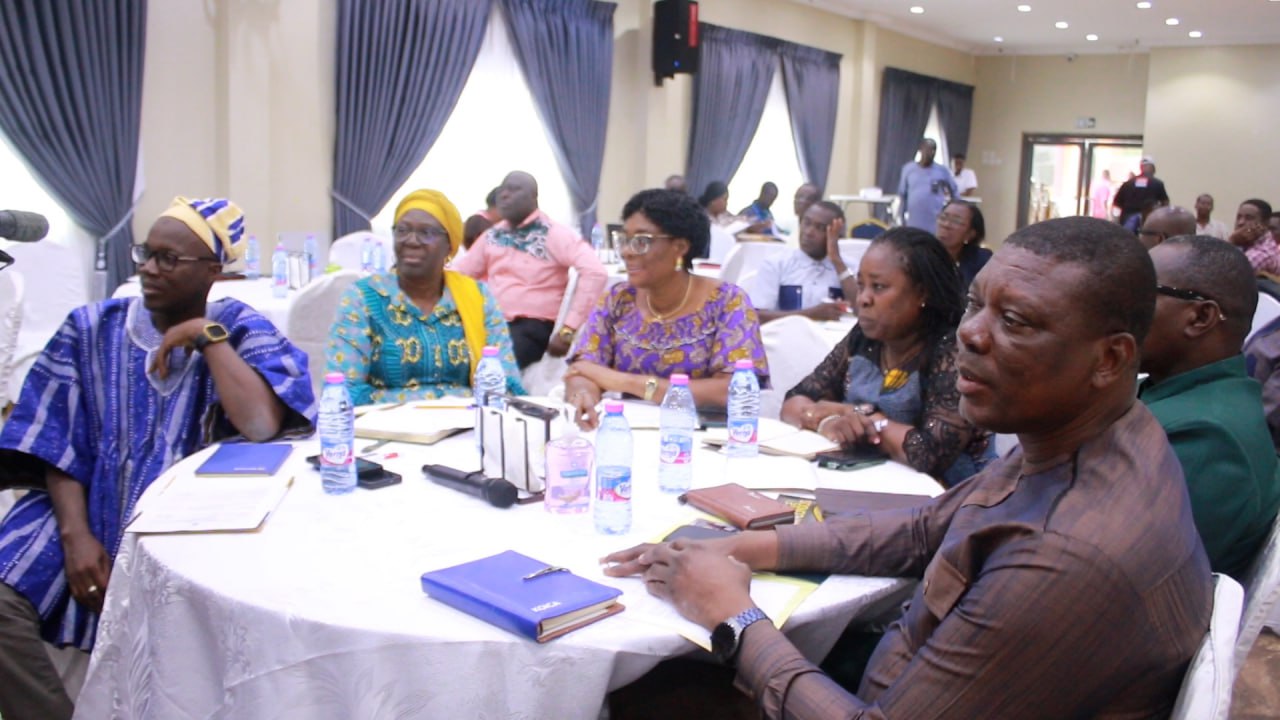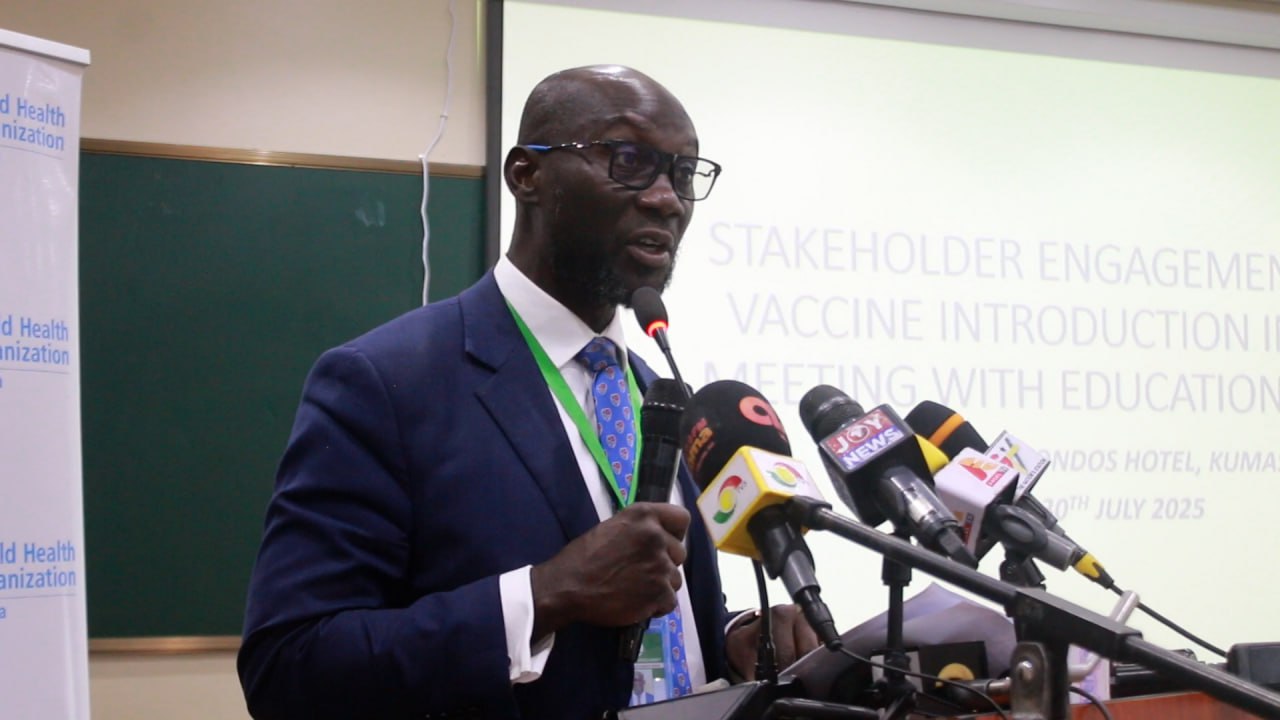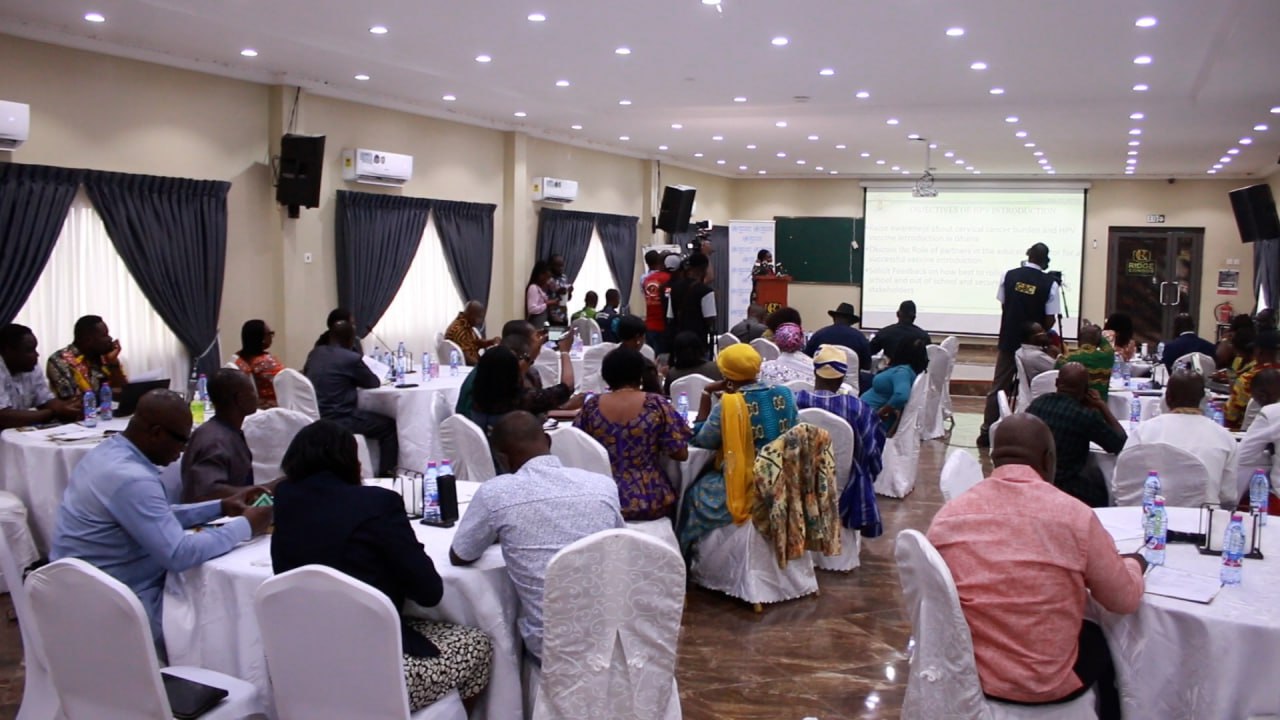The Representative of the World Health Organization (WHO) in Ghana, Dr Fiona Braka, has reiterated the urgent need for strong collaboration among stakeholders to accelerate the fight against cervical cancer, particularly through the effective rollout of the Human Papillomavirus (HPV) vaccine across the country.

Speaking during a high-level stakeholder engagement in Kumasi on Wednesday, 28th July 2028, Dr Braka emphasised that cervical cancer remains the fourth most common cancer globally, with more than 600,000 women diagnosed annually.
She noted with concern that the burden of the disease is disproportionately borne by developing countries, especially in sub-Saharan Africa, Central America, and South-East Asia.
“Tragically, more than half of these women succumb to the disease, and alarmingly, 9 out of 10 of the deaths occur in developing countries,” she said.

Dr Braka explained that in Africa, over 70% of cervical cancer cases are diagnosed at advanced stages, making treatment more difficult, costly, and often less successful.
“This level of suffering is unacceptable and must end,” she stated. “The global agenda to eliminate cervical cancer is enshrined in Sustainable Development Goal 3.4, which aims to reduce premature mortality from non-communicable diseases by one-third by 2030.”

The engagement, held in partnership with the Ghana Health Service (GHS) and Ghana Education Services brought together Directors of Education Services from across the country, Private Schools Associations, Regional Coordinators of the School Health Education Programme (SHEP), health professionals, and the media.
The meeting aimed to build synergy among key sectors for the smooth implementation of the HPV vaccine through Ghana’s national immunisation programme.
Dr Braka highlighted the importance of integrating the HPV vaccine into the routine immunisation schedule to ensure equitable and sustainable access for all girls aged 9 to 14 years.

She noted that Ghana is now part of a global movement, joining over 140 countries — including 28 within the WHO African Region — that have introduced the HPV vaccine.
“Delivering the HPV vaccine through the national immunisation programme assures equitable and sustainable access for all girls aged 9–14 years irrespective of sociodemographic profile,” she noted.
She further underscored the WHO’s “90-70-90” strategy as the benchmark for cervical cancer elimination: “90% of girls fully vaccinated against HPV by age 15, 70% of women screened at ages 35 and 45, and 90% of women with pre-cancerous or cancerous lesions receiving appropriate treatment by 2030.”

In a special address to Directors of Education, Dr Braka said the majority of girls within the vaccine target group are in school, making school-based vaccination a critical strategy.
She commended Ghana’s School Health Programme for its existing impactful initiatives, such as Girls’ Iron-Folate Supplementation (GIFTS) and mass drug administration for neglected tropical diseases.
“The introduction of the HPV vaccine presents a unique opportunity to strengthen school-based health services and safeguard our future workforce,” she said. “We must deepen collaboration to ensure healthcare workers have access to schools to deliver services and that no eligible girl is left behind.”

Dr Braka also recognised the vital role of the media in the successful implementation of the programme.
She urged media professionals to use their platforms to spread accurate and science-based information, while also creating space for health experts to educate the public.
“Verify facts with health experts and credible sources to combat misinformation and disinformation,” she advised. “Share human-centred stories that highlight the impact of HPV vaccination and provide opportunity for experts to educate the public.”
Concluding her address, Dr Braka expressed WHO’s unwavering commitment to support Ghana’s health sector in achieving universal health coverage and the elimination of cervical cancer.

“Cervical cancer elimination is within reach, and Ghana is well-positioned to win this fight. WHO remains steadfast in its support to the Government of Ghana in achieving health for all. Let us unite in support of HPV vaccination. Together, we can protect the health of our women, strengthen our communities, and secure a brighter future,” she said.
By; Nana Yaw Owusu (0240782639).





